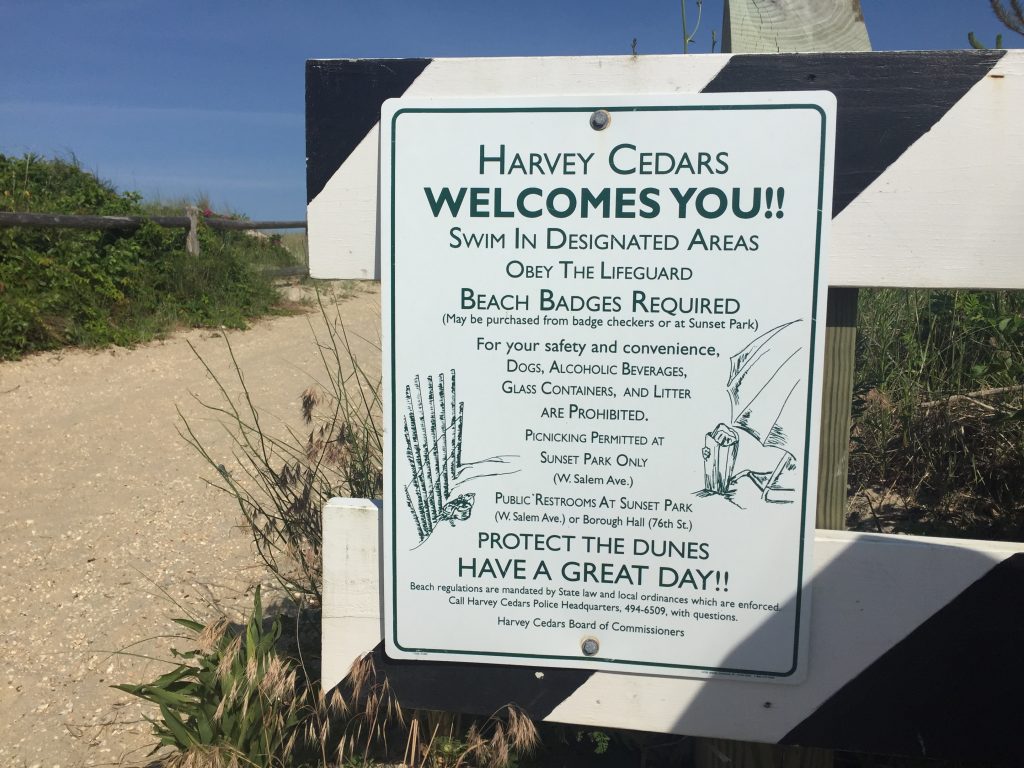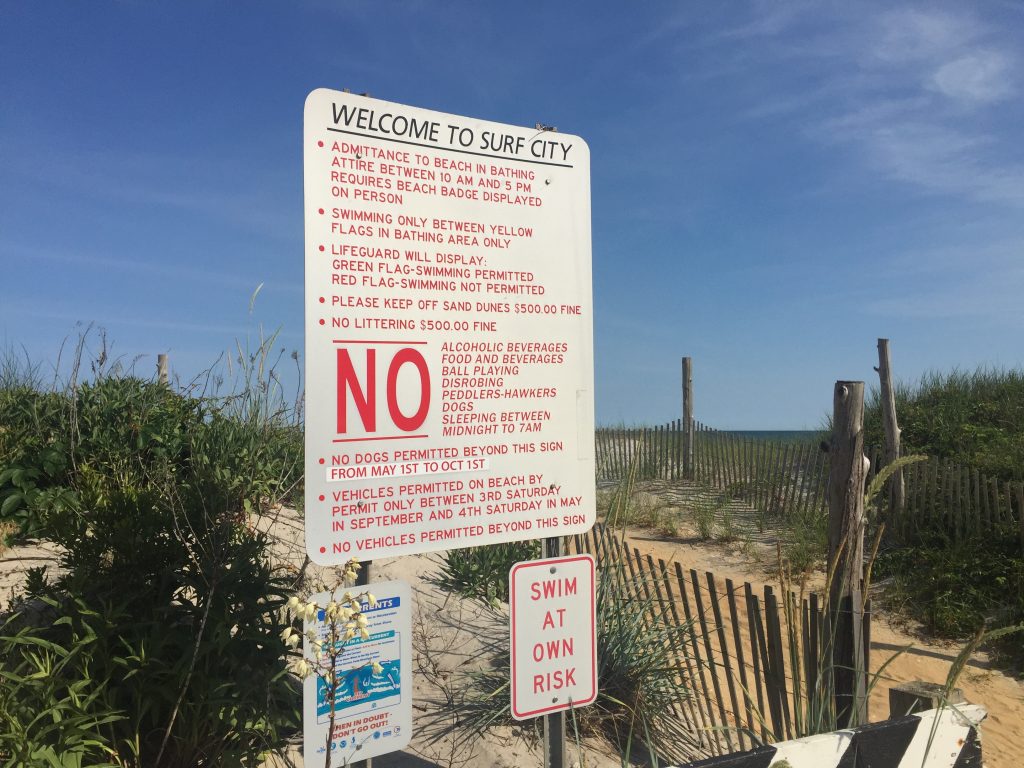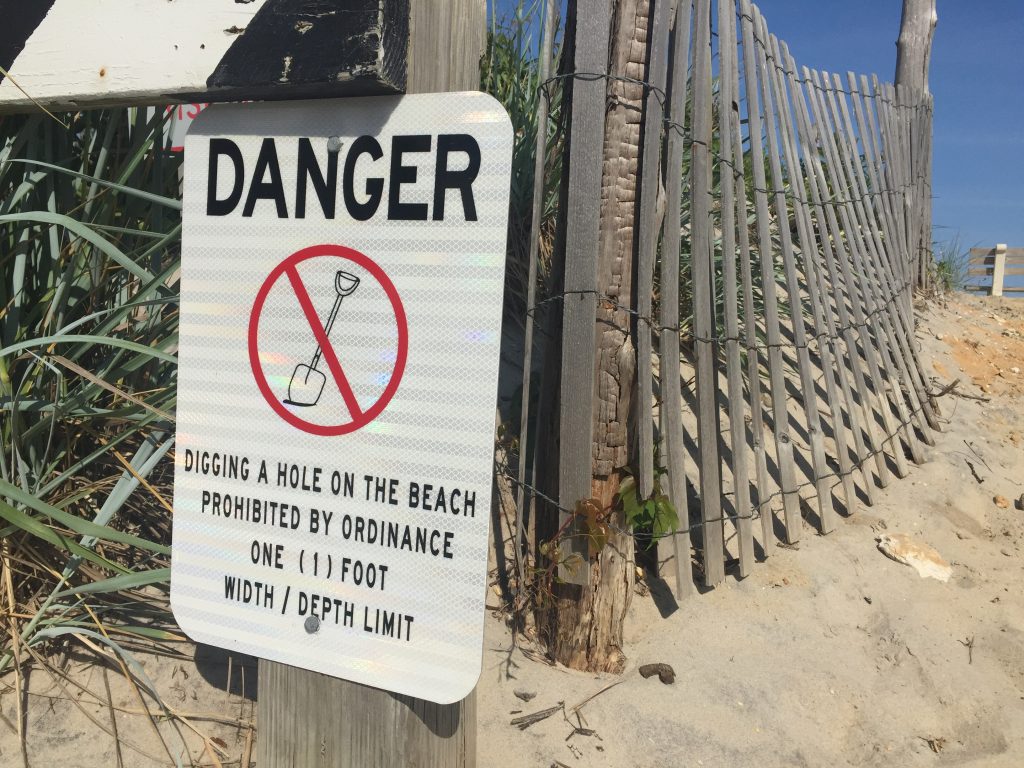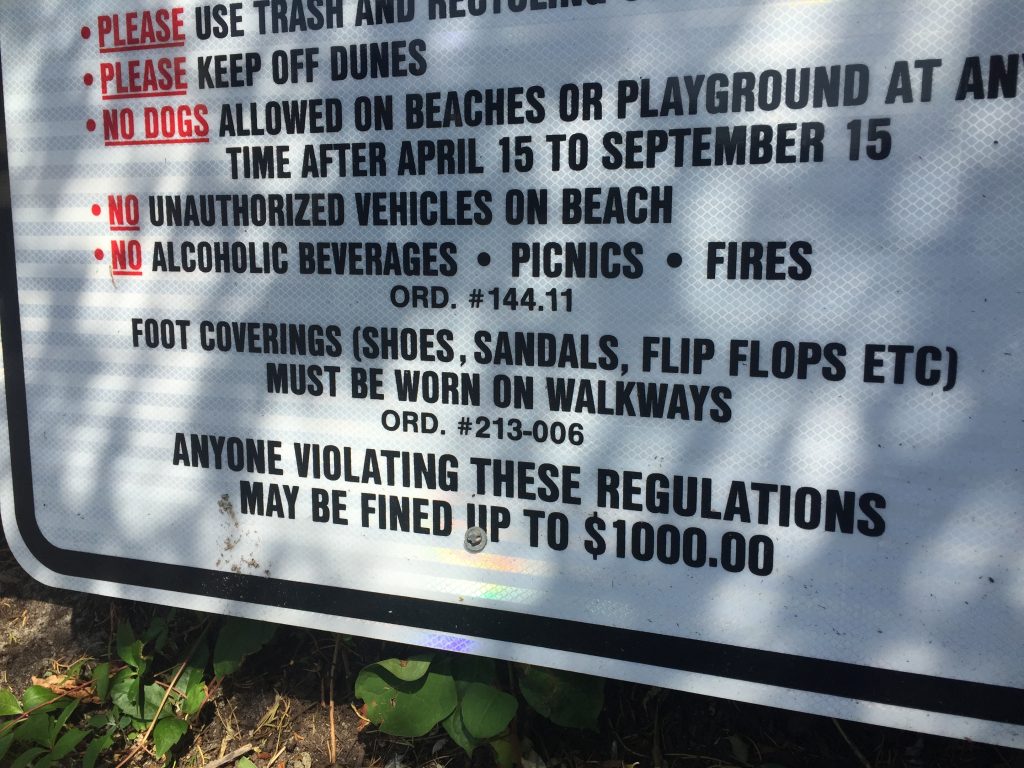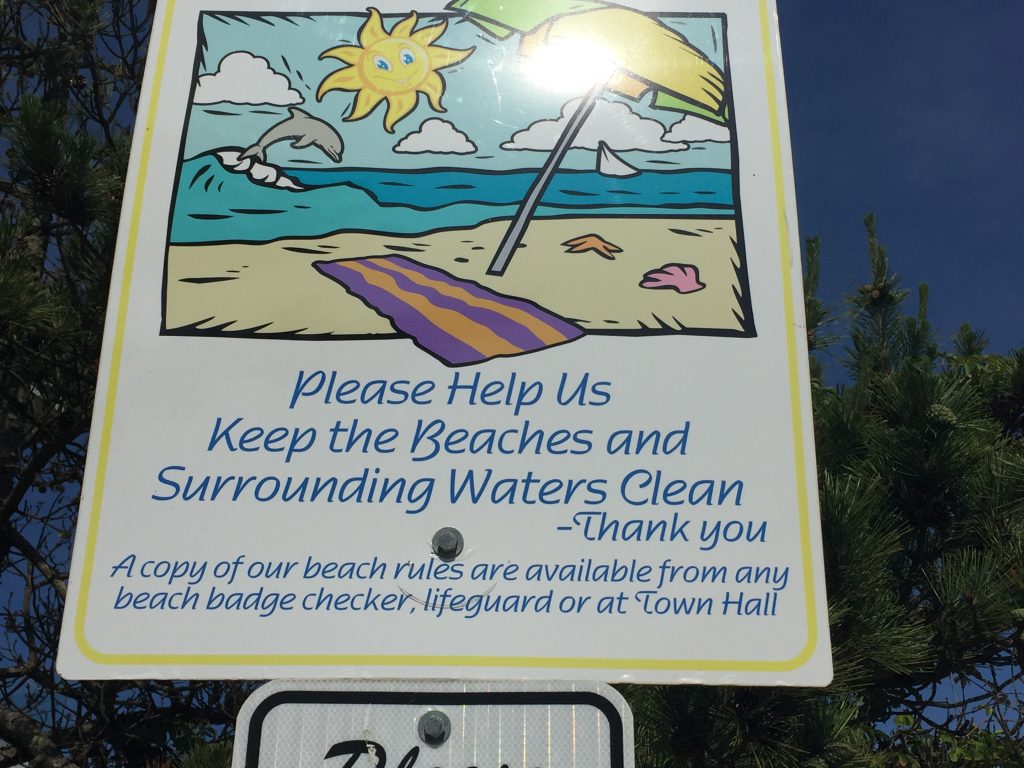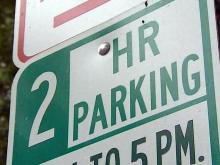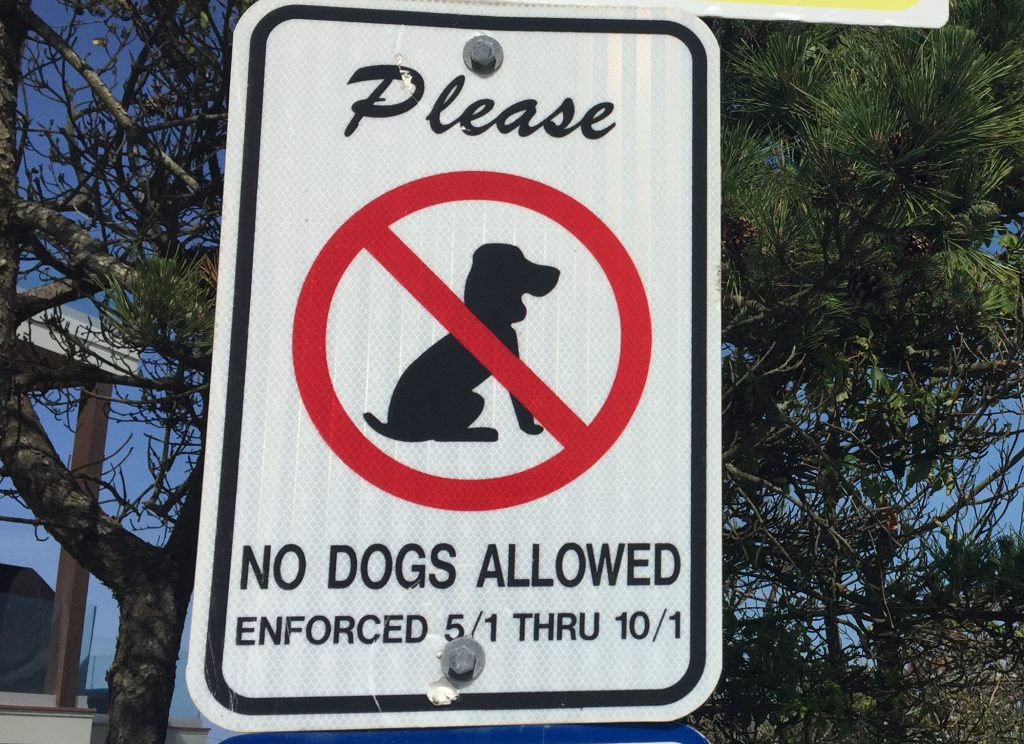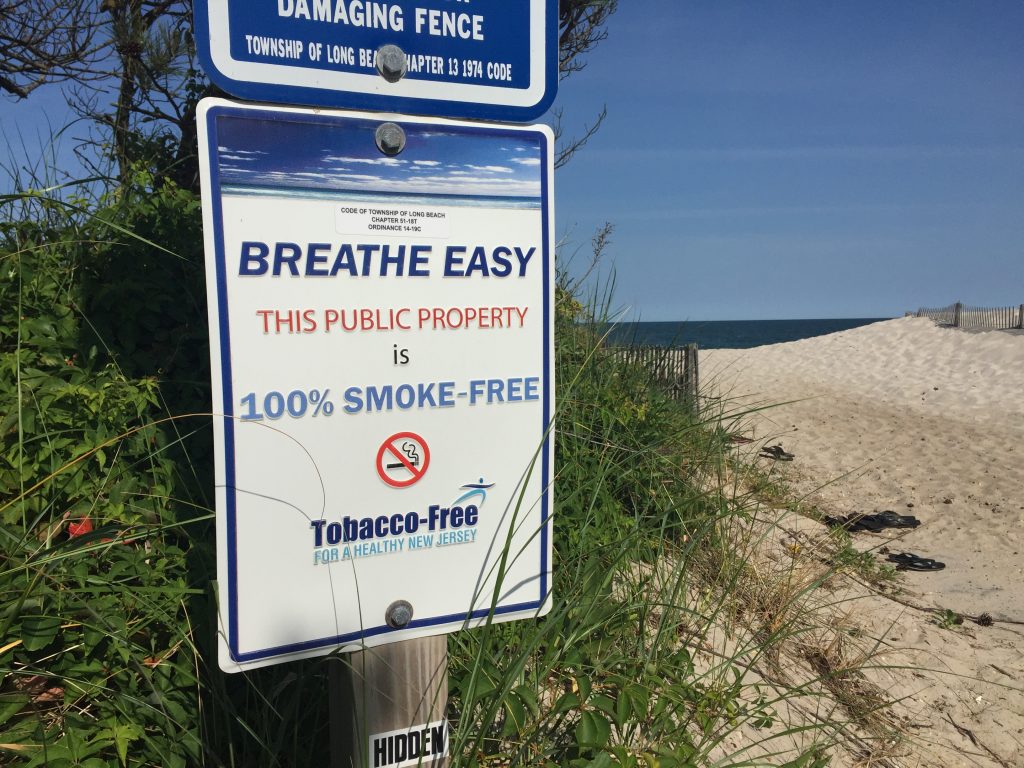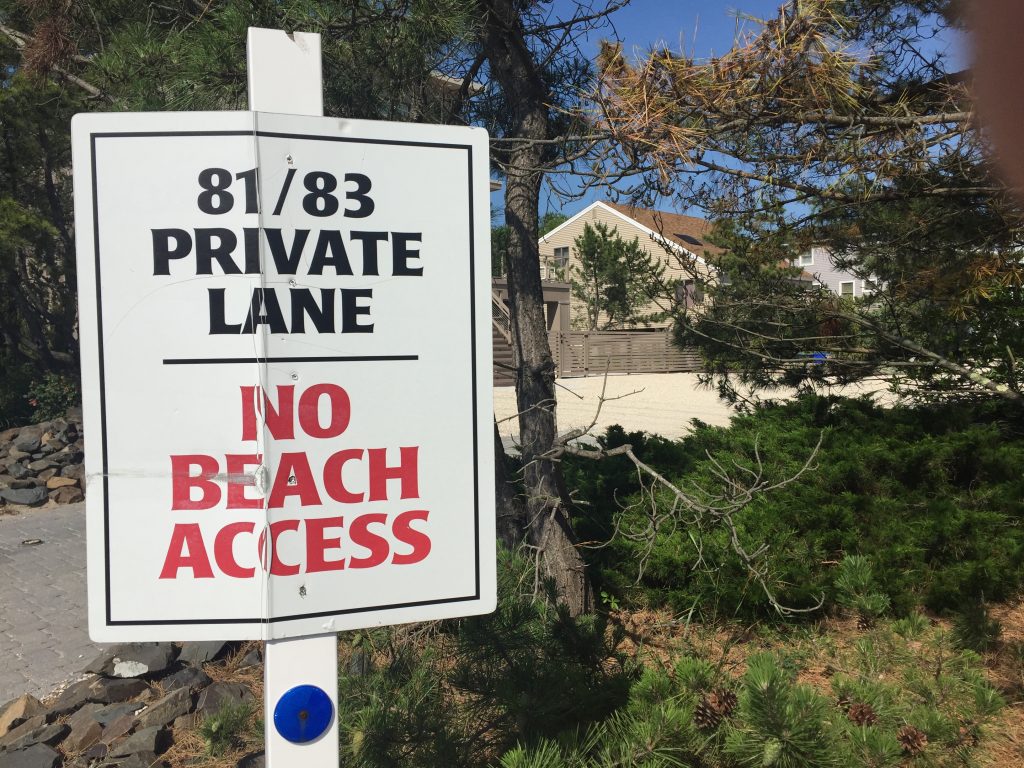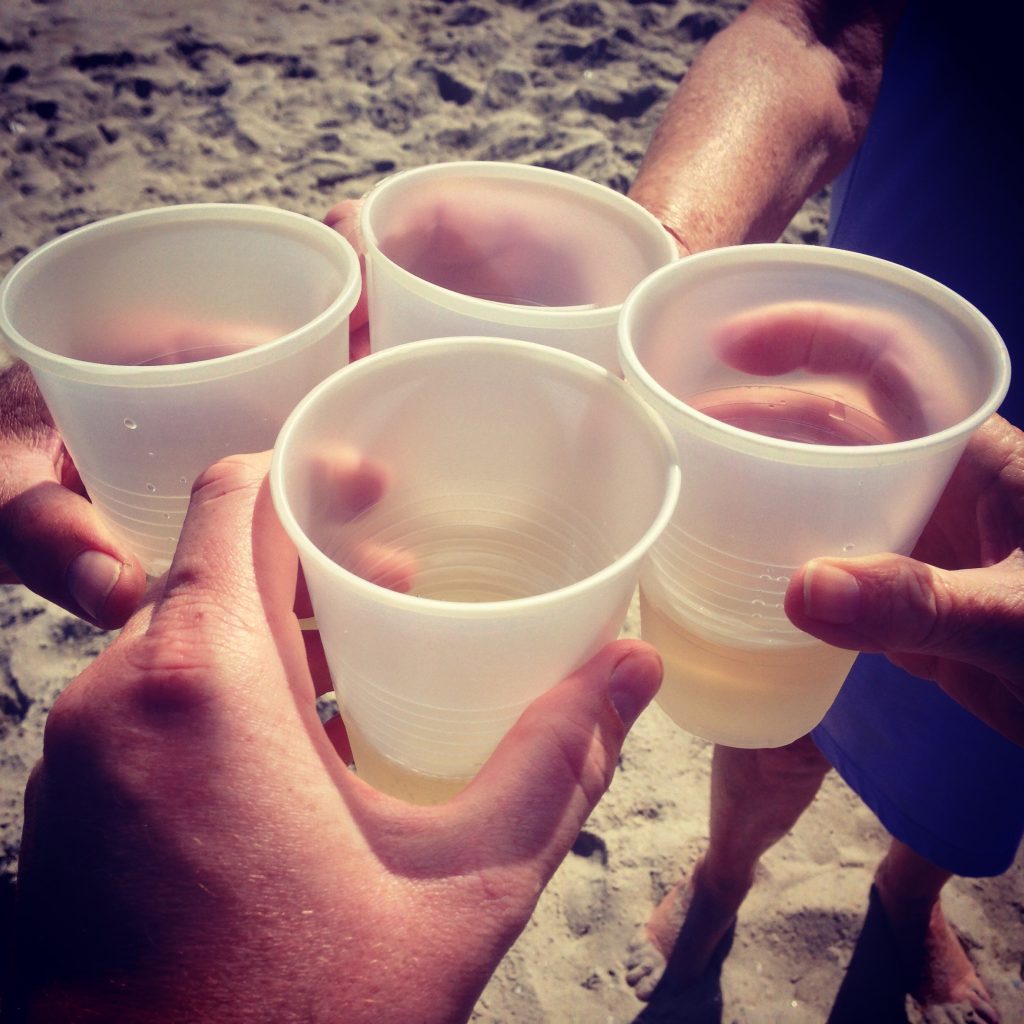Let’s face it: New Jersey has a reputation of being a nanny state. A law was recently proposed that would ban walking-while-texting, there are pedestrian safety laws that have caused more problems than they solved and, of course, we can’t pump our own gas.
We won’t make a judgment as to whether some of these laws are well-intended public safety protections or government run amuck, but there’s no denying that the nanny state mentality is alive and well at Jersey Shore beaches. To spark a discussion, and have a little fun, we collected some of our favorites to share.
1. You Can’t Have a Picnic
In the Long Beach Island town of Harvey Cedars, picnicking is off limits on the sand – at least the ocean sand. A sign at the entrance to each public beach in town warns sun seekers that having a picnic is only allowed at Sunset Park, the town’s bay beach. The sign wasn’t clear on whether there’s an all-out ban on food or drink (it also specifies no glass bottles, but doesn’t comment on plastic containers) or what, specifically, constitutes an illegal “picnic.”
2. You Can’t Play Ball
Want to play catch? Toss a tennis ball around with some sticky mits? A little football back by the dunes? It’s a no-no in Surf City, where “ball playing” is one of a slew of prohibitions that greet visitors with a giant “NO” sign at each beach entrance.
3. You Can’t Dig a Hole in the Sand
Hole-digging is a beach institution. Granted, going overboard comes with certain dangers, but it’s the subject of bans in numerous Shore towns.
4. You Can’t Go Barefoot on the Walkway to the Beach
In Long Beach Township, better make sure your flip-flops are securely on your feet. Going barefoot on walkways up to the beach is banned by ordinance and can, technically, net you a $1,000 fine.
5. You Can’t Drink a Beer (On the Sand)
New Jersey loves its vices. Gambling is legal just off the sand in Atlantic City, and Gov. Chris Christie vetoed a bill that would have banned smoking on the beach last year. Booze, however, is a no-no on essentially every public beach in the state. There are, however, numerous bars just feet away on most boardwalks, if you’re in the mood for an adult beverage.
6. There Are So Many Rules, You Can’t Read Them All at the Beach Entrance
Back in Long Beach Township, good citizens can obtain a full booklet of all the beach rules from beach badge checkers, lifeguards, or at town hall.
7. Your Beach Day Can’t Exceed Two Hours
Famous for its odd beach regulations (public beaches aren’t guarded, but there are guards who keep watch over public beaches run by a private association) Mantoloking is also well-known for onerous parking regulations. On nearly every beach block in town, vehicles can only park for two hours at a time. Don’t just move your car and head back to your beach chair – the time limit applies to any space in town.
7. You Can’t Bring Your Dog With You
Uniformly, up and down the Jersey Shore, man’s best friend has to stay home during the beach season. It seems normal to those from the Garden State, but “no dogs allowed” beach regulations are relatively uncommon in many other states.
8. On Some Beaches, You Can’t Smoke
There are smoking regulations in many Jersey Shore beach towns, including Seaside Heights and Seaside Park. But in others, the law varies from a full allowance to smoking and non-smoking sections divided by either blocks or the number of feet from beach entrances.
9. You Can’t Go to the Beach, Period
In some New Jersey towns, the bulk of the oceanfront is owned by private homeowners. In these towns (Mantoloking, Ocean Beach, Loveladies) the sand is off-limits to the masses.
10. You Can’t Sleep on the Beach (During Certain Hours)
If you want to take a nap on the sand, better make sure it isn’t between midnight and 7 a.m. in Surf City. Camping overnight is definitely out, but one wonders what would happen when someone takes an unexpected snooze during a late-night fishing expedition.
11. You Can’t Bring a Cooler Without Going Through an Alcohol Checkpoint First
In Brick Township, the local governing body this year passed an ordinance that requires a checkpoint at beach entrances to make sure no one is smuggling hooch onto the beach.

Advertisement

Ortley Beach & North Beaches
Landmark Ortley Beach Breakfast Spot Looks to Expand

Ortley Beach & North Beaches
‘Temporary’ 70-Foot Cell Tower on Route 35 in Ocean Beach OK’d to Return

Seaside Heights & Seaside Park
Beloved South Seaside Park Restaurant Will Remain Open As Developer Seeks to Demolish Block

Seaside Heights & Seaside Park
In Seaside Heights, A $50M Flagship Building Rises Over the Boulevard in a Famed Location

Police, Fire & Courts
Ocean County Sheriff Establishes Drone Command Center in Seaside Heights Amid New Video

